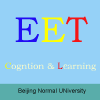-
Metacognition
普通类 -
- 支持
- 批判
- 提问
- 解释
- 补充
- 删除
-
-
Introduction
KNOWING HOW TO LEARN, and knowing which strategies work best, are valuable skills that differentiate expert learners from novice learners. Metacognition, or awareness of the process of learning, is a critical ingredient to successful learning.
-
What Is Metacognition?
Metacognition is an important concept in cognitive theory. It consists of two basic processes occurring simultaneously: monitoring your progress as you learn, and making changes and adapting your strategies if you perceive you are not doing so well. (Winn, W. & Snyder, D., 1998) It's about self-reflection, self-responsibility and initiative, as well as goal setting and time management.

Figure 1: Description of an expert learner"Metacognitive skills include taking conscious control of learning, planning and selecting strategies, monitoring the progress of learning, correcting errors, analyzing the effectiveness of learning strategies, and changing learning behaviors and strategies when necessary." (Ridley, D.S., Schutz, P.A., Glanz, R.S. & Weinstein, C.E., 1992)
-
How Does a Novice Learner Differ from an Expert Learner?
Novice Learners don't stop to evaluate their comprehension of the material. They generally don't examine the quality of their work or stop to make revisions as they go along. Satisfied with just scratching the surface, novice learners don't attempt to examine a problem in depth. They don't make connections or see the relevance of the material in their lives.
Expert learners are "more aware than novices of when they need to check for errors, why they fail to comprehend, and how they need to redirect their efforts." (Ertmer, P.A. & Newby, T.J., 1996)
Take reading for example. We've all experienced the phenomenon of reading a page (or a whole chapter!) in a textbook and then realizing we haven't comprehended a single thing. A novice learner would go on to the next page, thinking that merely reading the words on a page is enough. An expert learner would re-read the page until the main concept is understood, or flag a difficult passage to ask for clarification from an instructor or peers later.-
Metacognitive Strategies for Successful Learning
Imagine you are about to take a final exam. Here are some metacognitive strategies to try:

Figure 2: Using metacognitive strategies to study for an essay exam.-
More on Metacognitive Strategies for Successful Learning
Awareness:
- Consciously identify what you already know
- Define the learning goal
- Consider your personal resources (e.g. textbooks, access to the library, access to a computer work station or a quiet study area)
- Consider the task requirements (essay test, multiple choice, etc.)
- Determine how your performance will be evaluated
- Consider your motivation level
- Determine your level of anxiety
Planning:
- Estimate the time required to complete the task
- Plan study time into your schedule and set priorities
- Make a checklist of what needs to happen when
- Organize materials
- Take the necessary steps to learn by using strategies like outlining, mnemonics, diagramming, etc.
Monitoring and Reflection:
- Reflect on the learning process, keeping track of what works and what doesn't work for you
- Monitor your own learning by questioning and self-testing
- Provide your own feedback
- Keep concentration and motivation high
-
Why Are Metacognitive Strategies So Important?
As students become more skilled at using metacognitive strategies, they gain confidence and become more independent as learners. Independence leads to ownership as student's realize they can pursue their own intellectual needs and discover a world of information at their fingertips.
The task of educators is to acknowledge, cultivate, exploit and enhance the metacognitive capabilities of all learners.-
Relation
Julie Halter Graduate Student, SDSU Department of Educational Technology
-
-
- 标签:
- expert
- strategies
- metacognition
- metacognitive
- learners
- work
- learner
- reading
- learning
- page
- novice
-
加入的知识群:



学习元评论 (0条)
聪明如你,不妨在这 发表你的看法与心得 ~